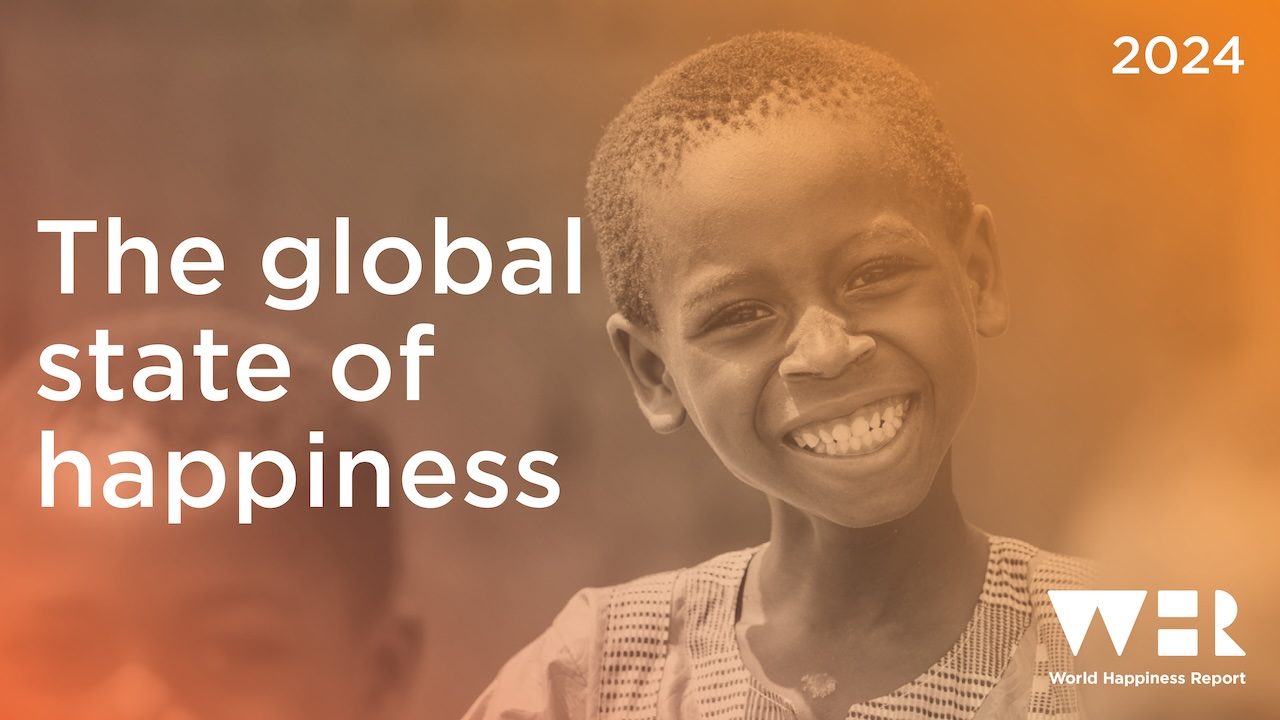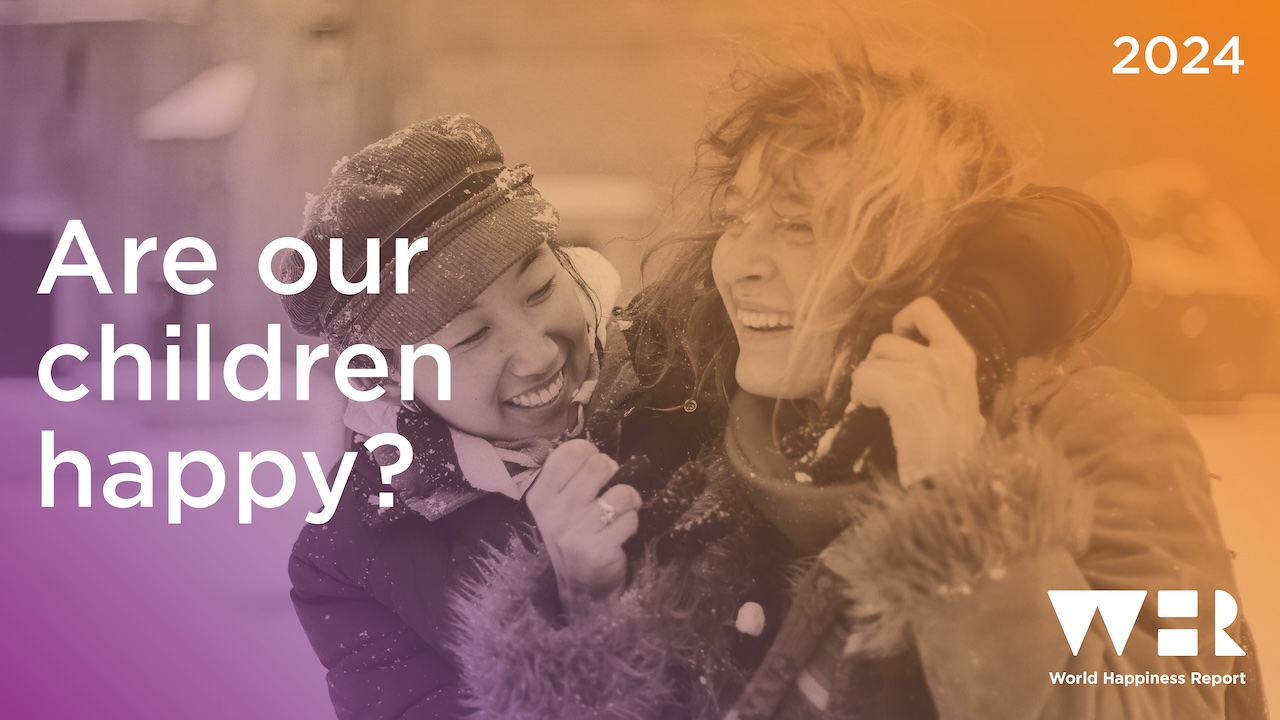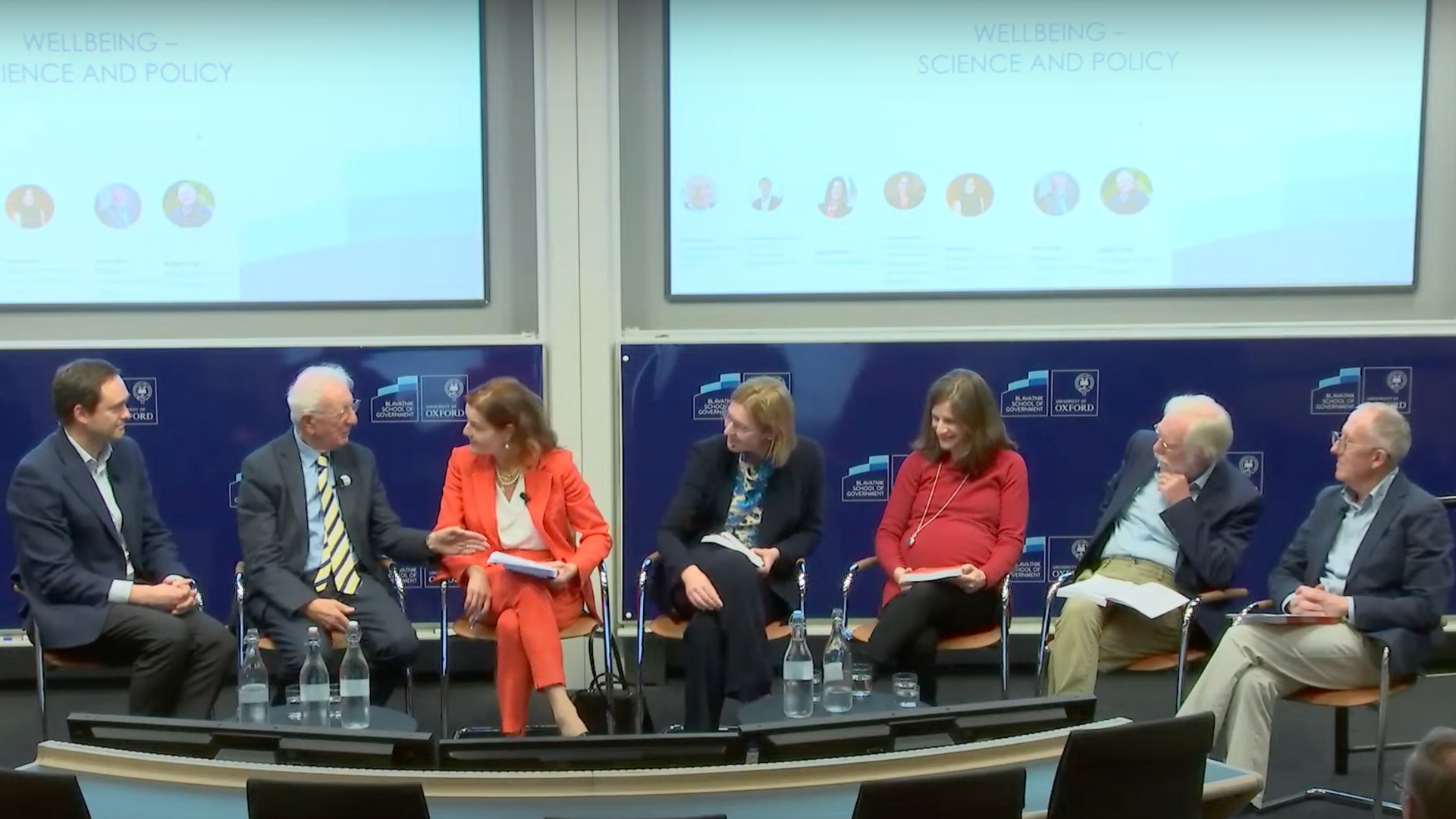Fresh insights from the World Happiness Report 2024, released today (March 20), paint the richest picture yet of happiness trends across different ages and generations.
The findings, announced today to mark the UN’s International Day of Happiness, are powered by data from the Gallup World Poll and analysed by some of the world’s leading wellbeing scientists.
Experts use responses from people in more than 140 nations to rank the world’s ‘happiest’ countries. Finland tops the overall list for the seventh successive year, though there is considerable movement elsewhere:
- Serbia (37th) and Bulgaria (81st) have had the biggest increases in average life evaluation scores since they were first measured by the Gallup World Poll in 2013, and this is reflected in climbs up the rankings between World Happiness Report 2013 and this 2024 edition of 69 places for Serbia and 63 places for Bulgaria.
- The next two countries showing the largest increases in life evaluations are Latvia (46th) and Congo (Brazzaville) (89th), with rank increases of 44 and 40 places, respectively, between 2013 and 2024.
Significantly, the United States of America (23rd) has fallen out of the top 20 for the first time since the World Happiness Report was first published in 2012, driven by a large drop in the wellbeing of Americans under 30. Afghanistan remains bottom of the overall rankings as the world’s ‘unhappiest’ nation.
For the first time, the report gives separate rankings by age group, in many cases varying widely from the overall rankings. Lithuania tops the list for children and young people under 30, while Denmark is the world’s happiest nation for those 60 and older.
In comparing generations, those born before 1965 are, on average, happier than those born since 1980. Among Millennials, evaluation of one’s own life drops with each year of age, while among Boomers life satisfaction increases with age.
Rankings are based on a three-year average of each population’s average assessment of their quality of life1. Interdisciplinary experts from the fields of economics, psychology, sociology and beyond then attempt to explain the variations across countries and over time using factors such as GDP, life expectancy, having someone to count on, a sense of freedom, generosity and perceptions of corruption.
These factors help to explain the differences across nations, while the rankings themselves are based only on the answers people give when asked to rate their own lives.
Prof John F. Helliwell, Emeritus Professor of Economics at the Vancouver School of Economics, University of British Columbia, and a founding Editor of the World Happiness Report, said: “The broad country coverage and annual surveys of the Gallup World Poll provide an unmatched source of data about the quality of lives all over the globe. There are now enough years of data, going back to 2006, to enable us this year to plausibly separate age and generational patterns for happiness.
“We found some pretty striking results. There is a great variety among countries in the relative happiness of the younger, older, and in-between populations. Hence the global happiness rankings are quite different for the young and the old, to an extent that has changed a lot over the last dozen years.”
Jon Clifton, CEO of Gallup, said “Effective policymaking relies on solid data, yet there remains a significant lack of it in various parts of the world. Today’s World Happiness Report attempts to bridge some of these gaps by offering insights into people’s perceptions of life on Earth. It offers more than just national rankings; it provides analytics and advice for evidence-based planning and policymaking. Our role in research on World Happiness is a natural fit with our longstanding mission: providing leaders with the right information about what people say makes life worthwhile.”
The World Happiness Report 2024 also features curated submissions on the theme of happiness across different age groups from experts at the forefront of wellbeing science.
Observing the state of happiness among the world’s children and adolescent population, researchers found that, globally, young people aged 15 to 24 report higher life satisfaction than older adults, but this gap is narrowing in Europe and recently reversed in North America.
Findings also suggest that the wellbeing of 15- to 24-year-olds has fallen in North America, Western Europe, the Middle East and North Africa, and South Asia since 2019 – but in the rest of world it has risen. Overall, though, there is a notable global scarcity of wellbeing data available for children below the age of 15.
Further work examines the relationship between wellbeing and dementia, identified as a significant area of research in a globally aging population.
Researchers highlight not only the impact of dementia on the wellbeing of individuals but also the reverse association: the demonstrable predictive power of higher wellbeing to reduce the risk of developing the disease in later life.
Finally, a team of researchers used a large survey of life satisfaction of older adults in what is now the world’s most populous nation: India. They found that within this older Indian population, increasing age is associated with higher life satisfaction, matching the findings of the global analyses.
These researchers also analysed the complex impact of India’s caste system on wellbeing among older adults, though satisfaction with living arrangements, perceived discrimination and self-rated health emerged as the top three predictors of life satisfaction in this study.
Prof Jan-Emmanuel De Neve, Director of Oxford’s Wellbeing Research Centre, Professor of Economics and Behavioural Science at Saïd Business School, and an Editor of the World Happiness Report, said “Once again the World Happiness Report uncovers some special empirical insights at the cutting edge of the wellbeing research frontier. Piecing together the available data on the wellbeing of children and adolescents around the world, we documented disconcerting drops especially in North America and Western Europe. To think that, in some parts of the world, children are already experiencing the equivalent of a mid-life crisis demands immediate policy action.
“It is a great privilege and responsibility for our Centre at Oxford to become the next custodian of the World Happiness Report and we’re committed to continuing to give the world the best evidence on the state of global happiness in collaboration with our partners.”
The World Happiness Report is a partnership of Gallup, the Oxford Wellbeing Research Centre, the UN Sustainable Development Solutions Network, and the WHR’s Editorial Board.
The report is produced under the editorial control of the WHR Editorial Board, formed of John F. Helliwell, Lord Richard Layard, Jeffrey D. Sachs, Jan-Emmanuel De Neve, Lara B. Aknin, and Shun Wang.
Read the report in full at worldhappiness.report.
- Nation rankings use data from the Gallup World Poll’s nationally representative samples for the years 2021 to 2023 (inclusive). They are based on answers to the main life evaluation question asked in the poll. This is called the ‘Cantril Ladder’: It asks respondents to think of a ladder, with the best possible life for them being a 10 and the worst possible life being a 0. They are then asked to rate their own current lives on that 0 to 10 scale.



